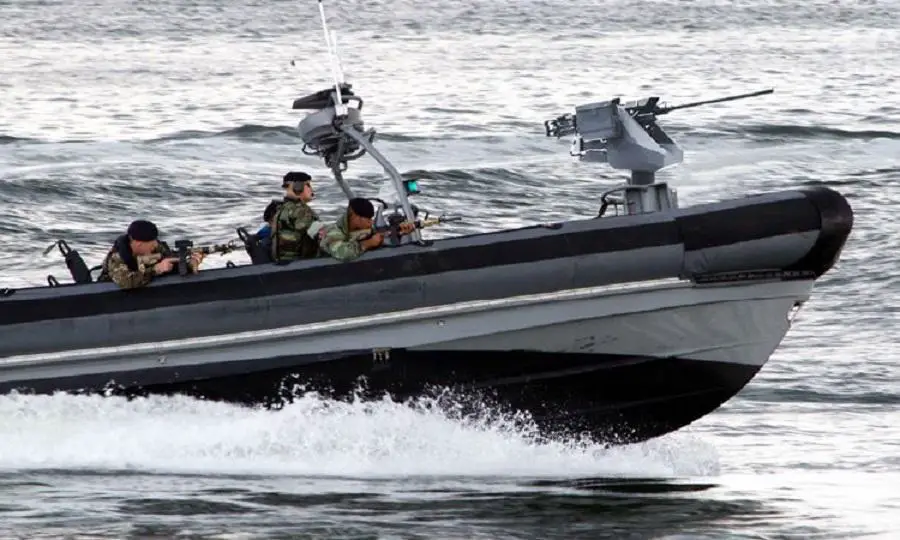Naval commandos rely on stealth and surprise to get close to the enemy, strike swiftly, and disengage. For these attributes, they rely on submersible vehicles or Rigid Hull Inflatable Boats – RHIB, small and fast boats, to bring them close to the target with the firepower they need. However, due to the size of these boats, naval commandos cannot use many of the sophisticated weapons employed on larger platforms. That is precisely where General Robotics’ new SHARK Remotely Controlled Weapon Station (RCWS) comes into effect.
“We designed SHARK to meet the specific requirements of naval commandos and SEALS. At the bottom line, the reduced weight and size derive significant benefits. It means SHARK can be mounted on smaller boats and handle the recoil loads with less weight and energy. As a result, SHARK consumes less power and delivers higher accelerations, resulting in better accuracy and agility. It can be used as a stand-alone system with its sensors or integrated with other sensors onboard. In this way, we offer tailor-made combat solutions to meet the unique requirements of our customers,” Shahar Gal, General Robotics’ CEO, said.

SHARK addresses the need for SOF to operate their weapons on small boats. These compact boats move at high speed and agility. Yet, the constantly moving platform degrades fire accuracy with conventional weapon mounts, requiring operators to get dangerously close to the enemy to deliver the desired effects. Crews on larger boats often operate stabilised weapon stations to improve fire accuracy, but these systems are much larger and heavier for RHIBs. To meet this challenge, General Robotics has introduced the SHARK, a unique RCWS that applies to naval roles, from special operations to law enforcement interception, including interception, coastal security, counter-terror, and anti-piracy activities.
SHARK addresses the need for SOF to operate their weapons on small boats. These compact boats move at high speed and agility. Yet, the constantly moving platform degrades fire accuracy with conventional weapon mounts, requiring operators to get dangerously close to the enemy to deliver the desired effects. Crews on larger boats often operate stabilised weapon stations to improve fire accuracy, but these systems are much larger and heavier for RHIBs. To meet this challenge, General Robotics has introduced the SHARK, a unique RCWS that applies to naval roles, from special operations to law enforcement interception, including interception, coastal security, counter-terror, and anti-piracy activities.

Addressing the most demanding needs of Naval Special Warfare (NSW), SHARK was designed and tested with users and experts from the local and international NSW community. SHARK fits on small manned and unmanned naval vessels, NSW boats, and raiding crafts to deliver versatile and accurate firepower. At a net weight of 85 kg (without weapon and ammunition), SHARK is much lighter and smaller than other naval weapon stations. Built as a rugged, robust, seaworthy system, it is versatile enough to operate remotely on a cluttered deck, scoring direct hits at a sea state up to 3, where the platform and targets constantly move.
The system’s size, weight, and power (SWaP) make SHARK particularly suitable for Naval Special Warfare (NSW) crafts, RHIB, and other manned or unmanned raiding crafts. It enables the crew to maximise the effect of small caliber weapons such as the 40mm automatic grenade launchers, 0.5? heavy machine guns, and 7.62mm light machine guns. As a veteran of Israel’s navy, Gal is accustomed to the marine environment, a knowledge that shaped the system’s design optimisation to increase operational flexibility, reduce the size and weight saving, and improve reliability.














